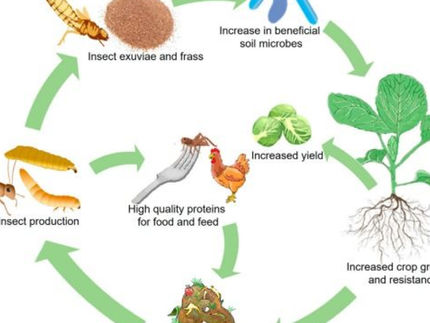BEET-Protect is looking for new approaches to keep the reed glasswing cicada away from sugar beet
Sugar industry supports the project with almost 940,000 euros until 2028
Advertisement
Sugar beet and its domestic cultivation are currently threatened by two bacteria. The two pathogens (Candidatus Arsenophonus phytopathogenicus and Candidatus Phytoplasma solani) use the reed cicada as a cab and its sucking activity as an entry point to infect the plants. The previously rather harmless cicada (Pentastiridius leporinus) has been on the advance through sugar beet cultivation areas for five years. The cicada is no longer only interested in beet. It can also develop on potatoes from the egg via nymph stages to the adult insect. The transported bacteria have now also been detected in vegetables such as beet and onions, which suggests that the cicada also sucks on these crops.
New methods are being feverishly sought to specifically prevent the harmful insect from reproducing and spreading or to keep it away from the plants in order to prevent infection with the bacteria. This is where the new BEET-Protect research project, which has been launched at the Julius Kühn Institute in Dossenheim, comes in. The focus is on so-called infochemicals, which are volatile substances emitted by plants as well as insects. Plants react to the infestation of harmful organisms by emitting deterrent scents. Insects in turn communicate with each other using infochemicals, for example to mate, and they are also attracted to the plants by scent signals. It is also not uncommon for an infection with viruses and bacteria that are dependent on insect transport to change the scent bouquet of a plant in order to attract these insect cabs. The BEET project now aims to clarify which infochemicals are involved in the interaction between sugar beet, the reed glasswing cicada and the bacteria.
The research project, which is funded by the German Sugar Industry Association (VdZ), aims to investigate the chemical communication and sucking behavior of the cicada in greater depth. "We are pursuing a multi-stage approach to prevent both the highly mobile adult insects that are willing to mate and the young nymphs that develop on the roots from sucking on the plant," explains Prof. Dr. Jürgen Gross, who is coordinating the project at the Julius Kühn Institute in Dossenheim. The work in two sub-projects is thus creating the basis for environmentally compatible regulation of the reed glasswinged cicada and, in a broader sense, for new control strategies in sugar beet production.
Note: This article has been translated using a computer system without human intervention. LUMITOS offers these automatic translations to present a wider range of current news. Since this article has been translated with automatic translation, it is possible that it contains errors in vocabulary, syntax or grammar. The original article in German can be found here.
Most read news
Organizations
Other news from the department science

Get the food & beverage industry in your inbox
By submitting this form you agree that LUMITOS AG will send you the newsletter(s) selected above by email. Your data will not be passed on to third parties. Your data will be stored and processed in accordance with our data protection regulations. LUMITOS may contact you by email for the purpose of advertising or market and opinion surveys. You can revoke your consent at any time without giving reasons to LUMITOS AG, Ernst-Augustin-Str. 2, 12489 Berlin, Germany or by e-mail at revoke@lumitos.com with effect for the future. In addition, each email contains a link to unsubscribe from the corresponding newsletter.





























































